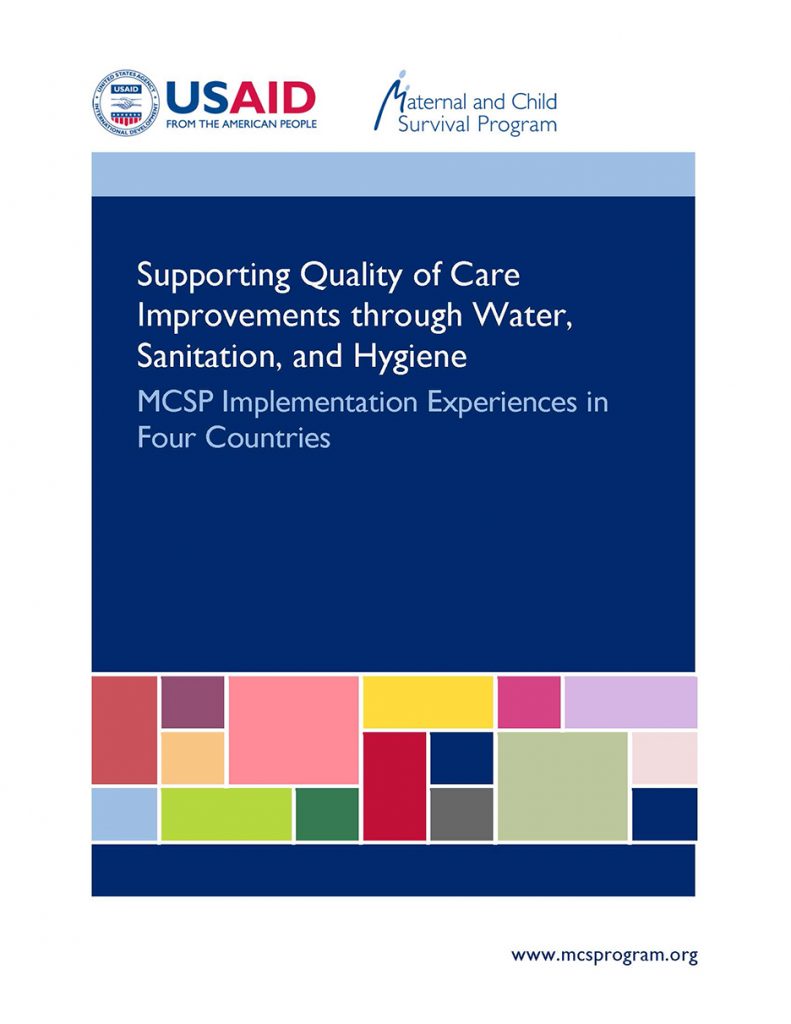
MCSP worked to improve health care facility WASH conditions and practices to contribute to quality of care (QoC) improvements and reductions of maternal and newborn infections through MCSP’s innovative Clean Clinic Approach. This report highlights experiences from four MCSP country programs (Haiti, Democratic Republic of the Congo, Guatemala, and Nigeria) that used WASH investments as […]
Read More…
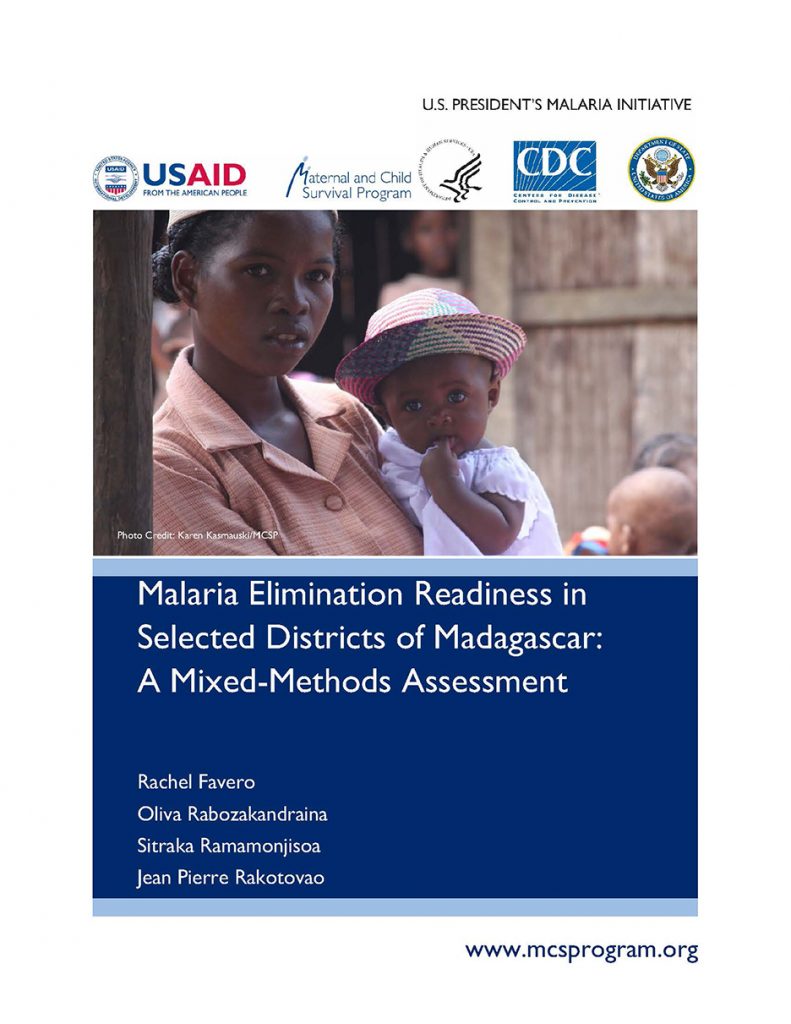
To prepare for the development of an operational plan for malaria elimination in Madagascar, MCSP, in collaboration with the President’s Malaria Initiative and the Ministry of Public Health/National Malaria Control Program, assessed the state of preparedness of the elimination and pre-elimination districts, measured by the operational capacity of health facilities and readiness of the health […]
Read More…
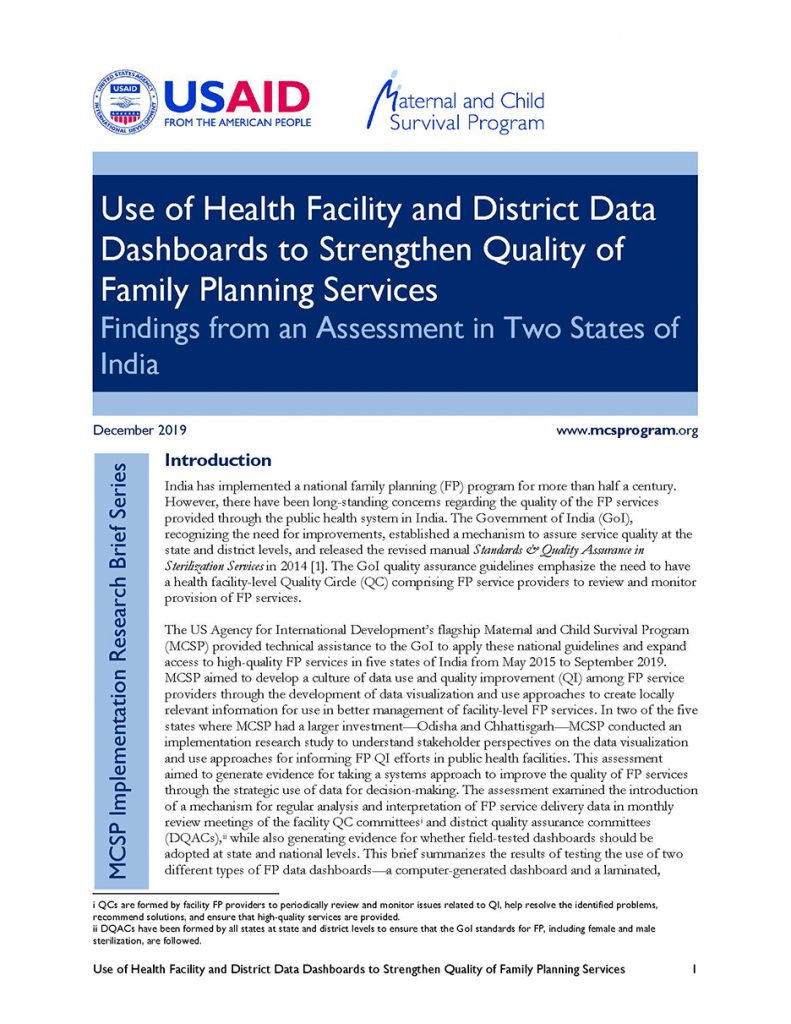
In five states of India, MCSP aimed to develop a culture of data use and quality improvement (QI) among family planning service providers through the development of data visualization and use approaches to create locally relevant information for use in better management of facility-level family planning services. In two of the five states where MCSP […]
Read More…
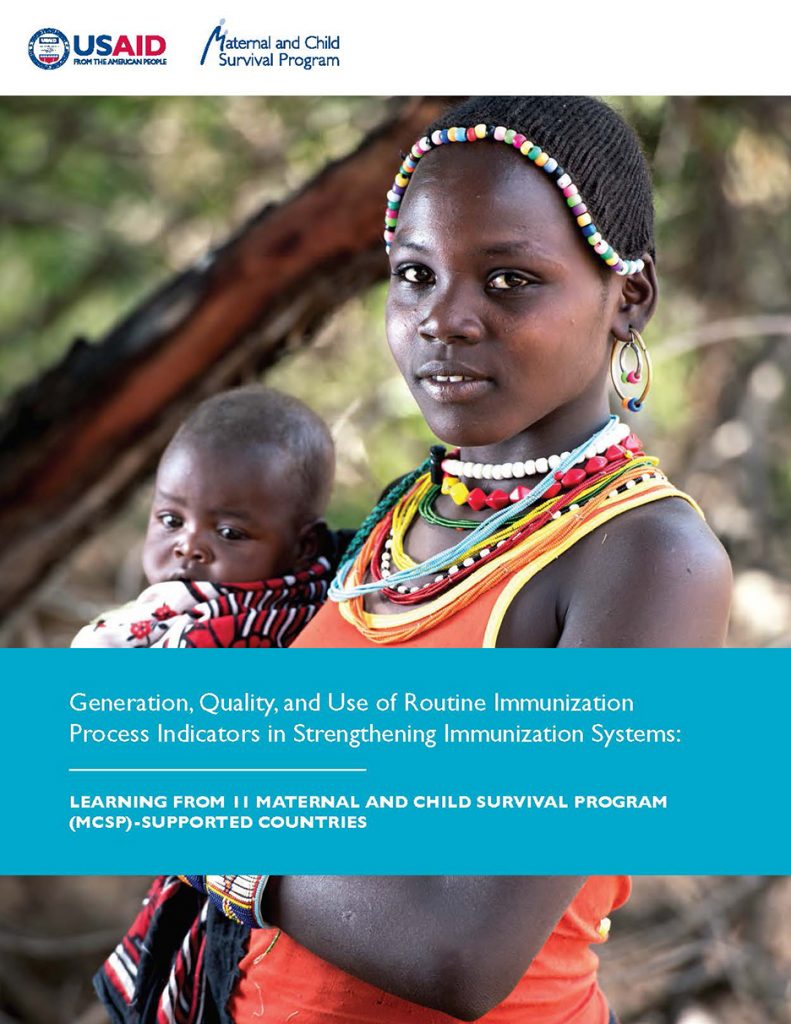
In countries where MCSP supported immunization programming, they worked with Ministries of Health and other partners to improve the generation, quality, and use of routine immunization data at the point of service delivery, i.e. at the health facility and community levels. In addition, MCSP carried out focused learning to test a set of process indicators […]
Read More…
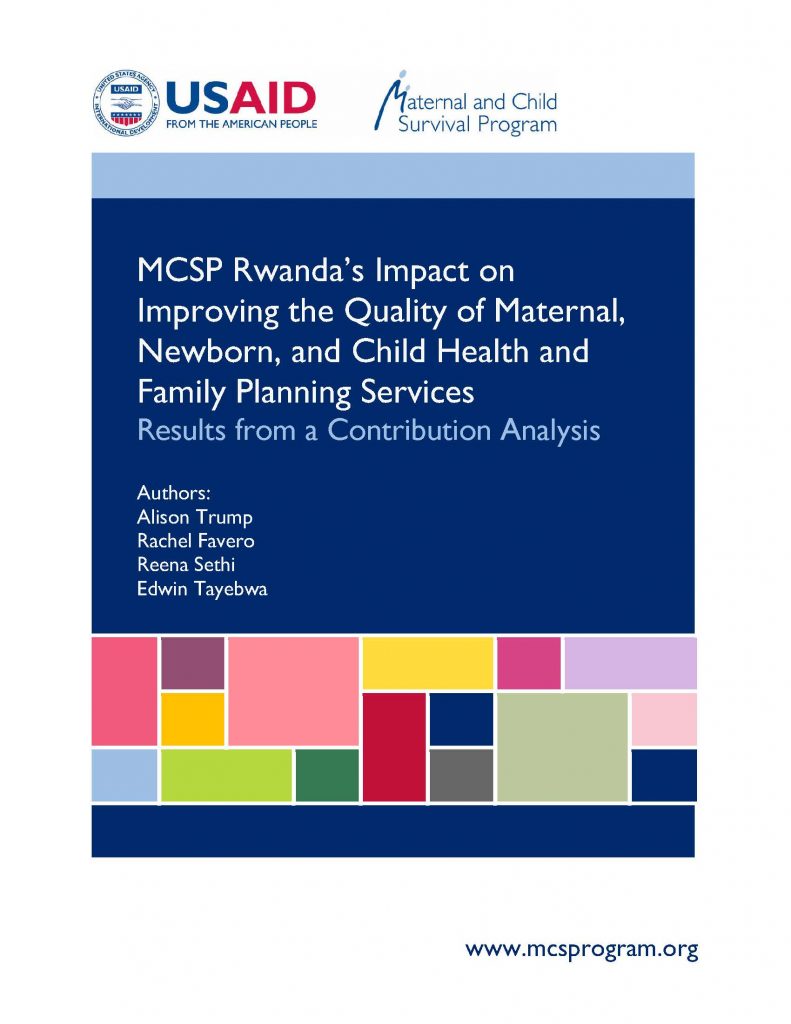
This analysis set out to answer the following questions and to assess evidence to support these questions: How did MCSP’s low-dose, high-frequency training and mentorship approaches improve and maintain health worker competencies in maternal, newborn and child health, and family planning? How did MCSP contribute to an increase in the uptake of postpartum family planning […]
Read More…
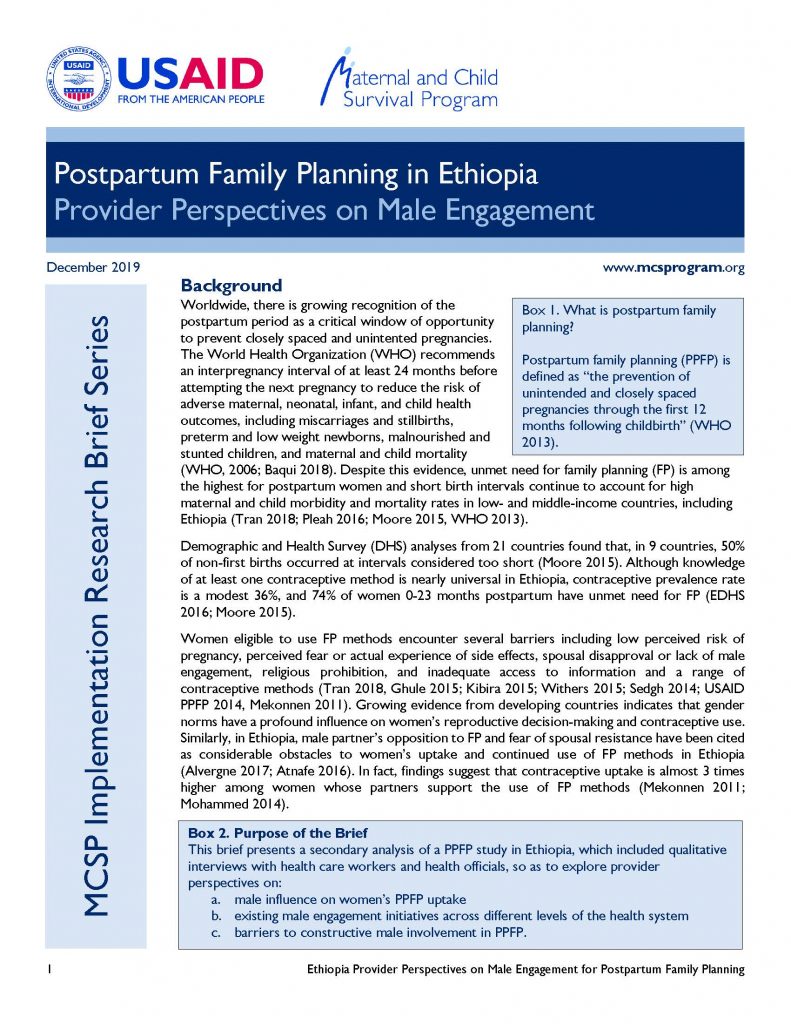
This implementation research brief presents a secondary analysis of a postpartum family planning (PPFP) study in Ethiopia, which included qualitative interviews with health care workers and health officials so as to explore provider perspectives on: Male influence on women’s PPFP uptake; Existing male engagement initiatives across different levels of the health system; and Barriers to […]
Read More…
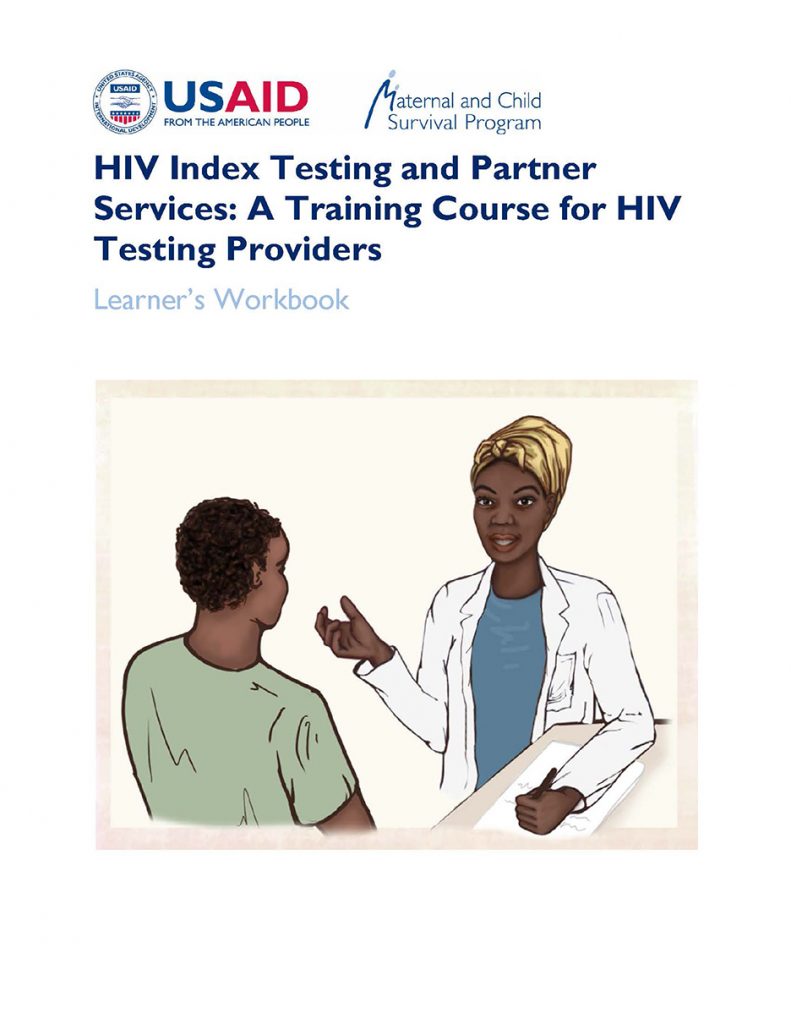
Partner notification is a voluntary process where trained service providers ask HIV-positive index clients about their sexual partners, their drug-injecting partners, and their children. Then with the consent of the HIV-positive index client, the service provider offers these partners (and children, where applicable) voluntary HIV testing. This training course is designed for HIV testing providers […]
Read More…
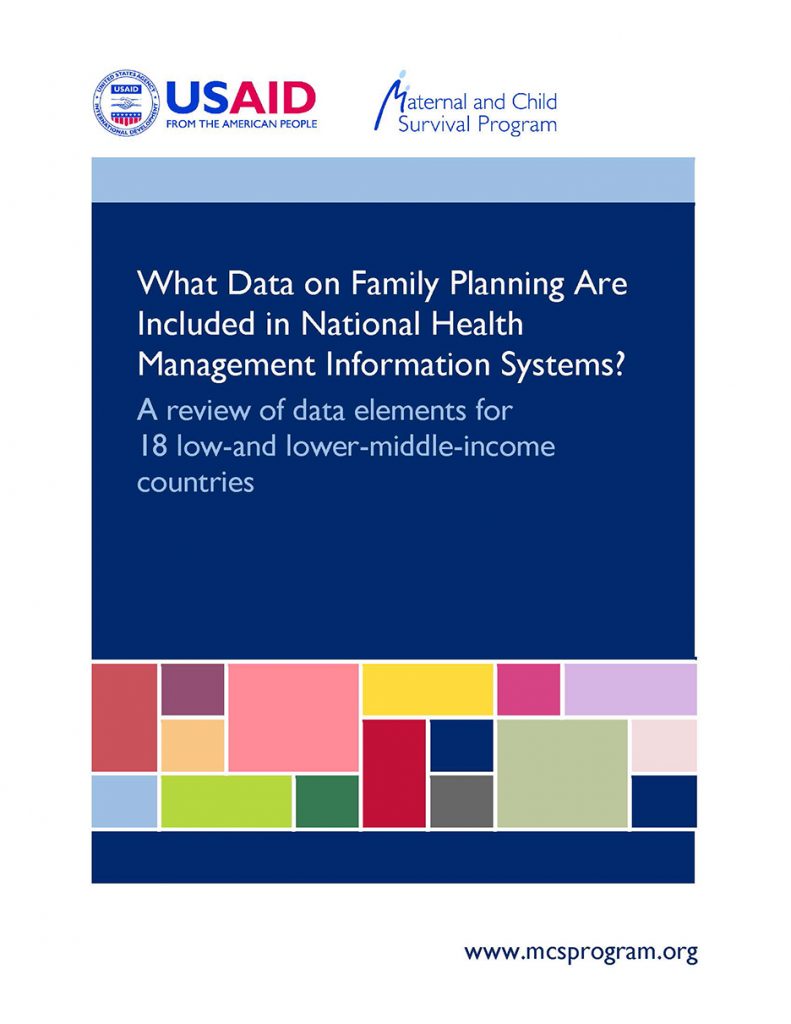
In 2018, MCSP completed a review of health management information systems (HMIS) tools in 24 countries to identify the key maternal and newborn health data elements that public health facilities collect and report. This review expands on that work, using the same methodology to identify data elements related to family planning that are available in […]
Read More…
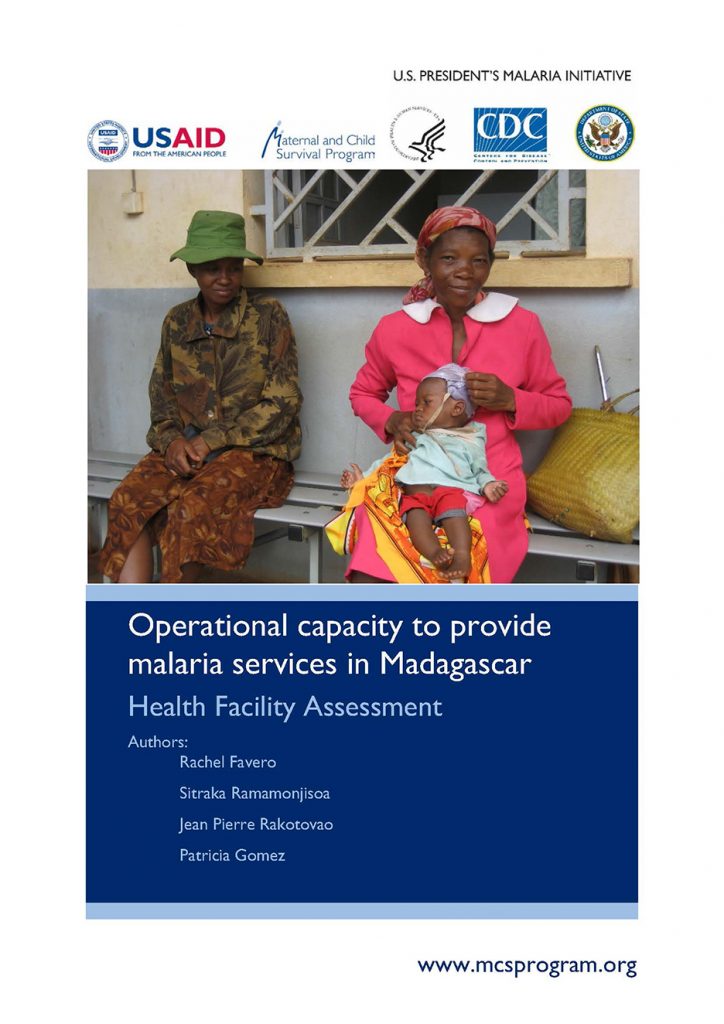
In 2018, MCSP Madagascar in partnership with the National Malaria Control Program conducted a health facility assessment to better understand health facility readiness and operational capacity to provide quality febrile illness and malaria case management in public and private health facilities across all eight malaria zones in Madagascar. The assessment aimed to evaluate the health […]
Read More…
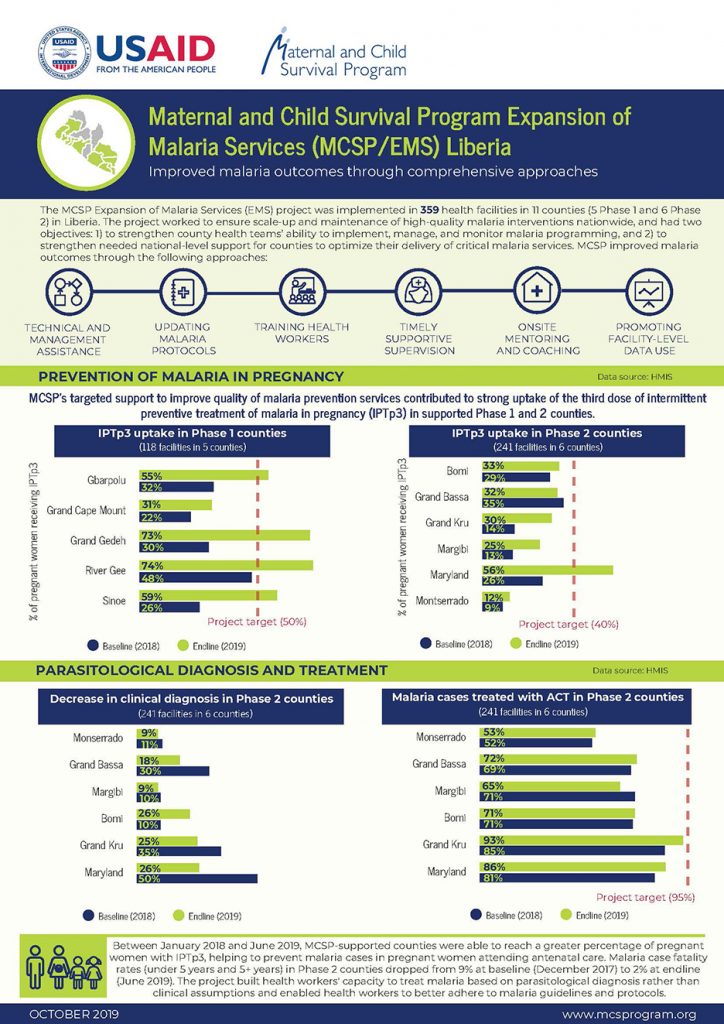
The MCSP Expansion of Malaria Services (EMS) project was implemented in 359 health facilities in 11 counties (5 Phase 1 and 6 Phase 2) in Liberia. The project worked to ensure scale-up and maintenance of high-quality malaria interventions nationwide, and had two objectives: 1) to strengthen county health teams’ ability to implement, manage, and monitor […]
Read More…










